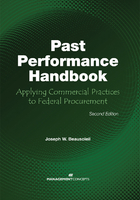BY SIR WALTER SCOTT
Sir Walter Scott (1771-1832): A Scottish novelist, poet, and historian. The most popular of his novels are "Old Mortality," "Ivanhoe," "Kenilworth," "The Talisman," "Quentin Durward," and "The Heart of Midlothian." His best poems are "The Lay of the Last Minstrel," "Marmion," and "The Lady of the Lake." A sketch of Scott"s life will be found in the Fifth Book of the "Graded Literature Readers."The following selection is from "The Talisman," the scene of which is laid in Palestine during one of the Crusades undertaken by Christian nations for the recovery of the Holy Land from the Turks. Sir Kenneth was a Scottish prince in disguise, who had joined the army of Richard1, the English king. Sir Kenneth had been left to guard the English flag, but had been lured from his post, and during his absence the flag had been torn down. He went at once to King Richard"s tent to report his failure in the performance of duty.
Ⅰ
It was about the hour of sunrise when a slow, armed tread was heard approaching the king"s pavilion; and ere De Vaux, who slumbered beside his master"s bed as lightly as ever sleep sat upon the eyes of a watchdog, had time to do more than arise and say,1 Richard Plantagenet (1157-1199): an English king called Coeur de Lion, the Lion Heart.
"Who comes?" the Knight of the Leopard entered the tent, with deep and devoted gloom seated upon his manly features.
"Whence this bold intrusion, Sir Knight?" said De Vaux, sternly, yet in a tone which respected his master"s slumbers.
"Hold! De Vaux," said Richard, awaking on the instant; "Sir Kenneth cometh like a good soldier to render an account of his guard; to such the general"s tent is ever accessible1." Then rising from his slumbering posture and leaning on his elbow, he fixed his large bright eye upon the warrior: "Speak, Sir Scot; thou comest to tell me of a vigilant, safe, and honorable watch, dost thou not? The rustling of the folds of the banner of England were enough to guard it, even without the body of such a knight as men hold thee.""As men will hold me no more," said Sir Kenneth; "my watch hath neither been vigilant, safe, nor honorable. The banner of England has been carried off.""And thou alive to tell it?" said Richard. "Away, it cannot be. There is not even a scratch on thy face. Why dost thou stand thus mute? Speak the truth; it is ill jesting with a king, yet I will forgive thee if thou hast lied.""Lied, Sir King!" returned the unfortunate knight, with fierce emphasis, and one glance of fire from his eye, bright and transient2 as the flash from the cold and stony flint. "But this also must be endured. I have spoken the truth.""By Saint George!" said the king, bursting into fury, which, however, he instantly checked-" De Vaux, go view the spot. This1Accessible: easy of access; approachable.
2Transient: passing quickly away; not lasting.
fever has disturbed his brain. This cannot be. The man"s courage is proof. It cannot be! Go speedily-or send, if thou wilt not go."The king was interrupted by Sir Henry Neville, who came, breathless, to say that the banner was gone, and the knight who guarded it overpowered, and most probably murdered, as there was a pool of blood where the banner spear lay shivered.
"But whom do I see here?" said Neville, his eyes suddenly resting upon Sir Kenneth.
"A traitor," said the king, starting to his feet and seizing the battle-ax which was ever near his bed, "a traitor! whom thou shalt see die a traitor"s death." And he drew back the weapon as in act to strike.
Colorless, but firm as a marble statue, the Scot stood before him, with his bare head uncovered by any protection, his eyes cast down to the earth, his lips scarcely moving, yet muttering probably in prayer. Opposite to him, and within the due reach for a blow, stood King Richard, his large person wrapt in the folds of his camescia or ample gown of linen, except where the violence of his action had flung the covering from his right arm and shoulder. He stood for an instant, prompt to strike- then sinking the head of the weapon toward the ground, he exclaimed, "But there was blood, Neville; there was blood upon the place. Hark thee, Sir Scot- brave thou wert once, for I have seen thee fight. Say thou hast slain two of the thieves in defense of the standard-say but one-say thou hast struck but a good blow in our behalf, and get thee out of the camp with thy life and thy disgrace!""You have called me a liar, my lord king," replied Kenneth,firmly; "and therein, at least, you have done me wrong. Know that there was no blood shed in defense of the standard save that of a poor hound, which, more faithful than his master, defended the charge which he deserted.""Now, by Saint George!" said Richard, again heaving up his arm. But De Vaux threw himself between the king and the object of his vengeance, and spoke with the blunt truth of his character: "My liege1, this must not be-here, nor by your own hand. It is enough of folly for one night and day, to have intrusted your banner to a Scot;--said I not they were ever fair and false?""Thou didst, De Vaux; thou wast right, and I confess it," said Richard. "I should have known him better. And yet, De Vaux, it is strange," he added, "to see the bearing of the man. Coward or10 traitor he must be, yet he abode2 the blow of Richard Plantagenet, as our arm had been raised to lay knighthood on his shoulder. Had he shown the slightest sign of fear, had but a joint trembled or an eyelid quivered, I had shattered his head like a crystal goblet. But I cannot strike where there is neither fear nor resistance.-Away with him, De Vaux," he whispered, "through the back entrance of our tent; coop him up close, and answer for his safe keeping with your life. And hark ye, he is presently to die; let him have a priest-we would not kill soul and body. And stay--hark thee--we will not have him dishonored; he shall die knightlike, in his belt and spurs; for, if his treachery be black, his boldness matches it."De Vaux, right glad, if the truth may be guessed, that the1Liege: king.














